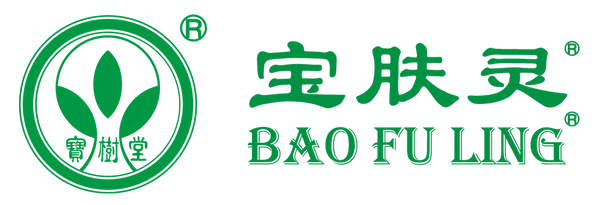
How Qian Jin Zhi Dai Wan Helps with Spleen and Kidney Deficiency: A TCM Guide for Women’s Health
Share
BaoshuTang Qian Jin Zhi Dai Wan: Classic TCM for Menstrual Health & Morbid Leukorrhea
Women’s physiological health—such as menstruation and leukorrhea—is a key indicator of overall wellness. According to Traditional Chinese Medicine (TCM), these are closely linked to the spleen, kidneys, qi, and blood.
BaoshuTang Qian Jin Zhi Dai Wan is a classic formula, expertly developed to regulate menstrual disorders and persistent leukorrhea due to spleen and kidney deficiency.

I. Theoretical Foundation: Wisdom from Huangdi’s Canon & Formula Design
Huangdi’s Canon of Medicine states: “The spleen is the foundation of acquired essence and the source of qi and blood transformation,” and “The kidney is the foundation of innate essence and governs reproduction.”
Spleen and kidney deficiency leads to insufficient qi and blood, manifesting as menstrual irregularities and excessive, clear leukorrhea in women.

BaoshuTang Qian Jin Zhi Dai Wan embodies the TCM principles of “strengthening the spleen, tonifying the kidney, regulating menstruation, and stopping leukorrhea” by combining three key herbal strategies:
- Strengthen spleen & kidney, benefit qi & consolidate essence: Chief herbs like Codonopsis, Processed Atractylodes, Eucommia Bark, Teasel Root, and Psoralea Fruit tonify spleen qi and kidney yang.
- Nourish blood, regulate menstruation, promote qi flow: Angelica, White Peony, Chuanxiong, Cyperus Rotundus, Costus, Amomum, Fennel, and Corydalis restore normal cycles and reduce leukorrhea.
- Clear heat & astringe, treat root and symptoms: Cockscomb Flower, Ailanthus Bark, Oyster Shell, and Indigo Naturalis stop leukorrhea, cool blood, and resolve damp-heat.
II. The “Qian Jin” Name: Inheriting TCM Gynecological Wisdom
The term “Qian Jin” pays tribute to Sun Simiao’s Essential Prescriptions Worth a Thousand Gold, reflecting the high value placed on women’s health and life. Qian Jin Zhi Dai Wan draws from centuries of TCM gynecology, skillfully blending proven herbs for a safe, reliable, and modern solution.
III. Core Formula Logic: Harmonizing Spleen & Kidney, Treating Root & Symptoms
1. TCM Monarch-Minister-Assistant-Guide Analysis
| Role | Main Herbs | Primary Effects |
|---|---|---|
| Monarch | Codonopsis, Processed Atractylodes, Salted Eucommia, Teasel Root, Salted Psoralea | Strongly tonify spleen & kidney, benefit qi, consolidate essence |
| Minister | Angelica, White Peony, Chuanxiong, Vinegar Cyperus | Nourish & invigorate blood, regulate qi, harmonize menstruation |
| Assistant |
Astringent/stop leukorrhea: Cockscomb, Ailanthus, Oyster Shell Qi flow/warm middle: Costus, Amomum, Fennel, Corydalis Clear heat/damp: Indigo Naturalis |
Enhance leukorrhea-stopping effect, regulate qi, clear damp-heat |
| Guide | Cyperus, Costus | Guide herbs to meridians, harmonize formula |
All herbs and processing follow the Chinese Pharmacopoeia (2020 Edition).
2. Modern Pharmacological Insights (Selected Components)
| Role | Key Herbs | Modern Pharmacological Research |
|---|---|---|
| Monarch | Codonopsis, Atractylodes, Eucommia, Teasel, Psoralea | Enhance immunity, improve digestion, regulate endocrine, fight fatigue, support bone health |
| Minister | Angelica, White Peony, Chuanxiong, Cyperus | Regulate uterine muscle, improve circulation, anti-inflammation, modulate estrogen |
| Assistant | Cockscomb, Ailanthus, Oyster Shell, Amomum, Fennel, Corydalis, Indigo Naturalis | Astringent, antibacterial, anti-inflammatory, antioxidant, immune-modulating |
| Guide | Cyperus, Costus | Promote absorption, regulate GI motility |
IV. Target Audience: For Spleen & Kidney Deficiency Patterns
- Menstrual Disorders: Irregular cycles, abnormal flow (pale, dilute, no clots); explained as spleen/kidney failing to consolidate blood and essence.
- Morbid Leukorrhea: Excessive, clear/watery, odorless discharge (non-infectious); due to spleen/kidney deficiency impairing dampness transport/retention.
- Systemic Symptoms: Fatigue, weak back/knees, pale/sallow complexion—resulting from insufficient qi and blood.
V. Safety Precautions & Scientific Use
1. Dietary & Lifestyle Tips
- Avoid raw, cold, spicy, greasy foods during medication
- Maintain regular sleep and avoid overwork
2. Cautions & Contraindications
- Not for use during colds or fevers
- Pregnant women, pre-pubertal girls, frail elderly, or those with chronic disease should use under medical supervision
- If leukorrhea is discolored, foul, or accompanied by itching, seek medical evaluation
- Discontinue and consult a doctor if symptoms persist or worsen after one month
- Contraindicated for those allergic to this product; use cautiously with allergy history
Warm Reminder: This is an OTC medicine. Please read the instructions carefully or consult a pharmacist before use. If unsure, seek advice from a healthcare professional.
References
- Chinese Pharmacopoeia Commission. Pharmacopoeia of the People's Republic of China (2020 Edition).
- Zhang X, et al. "Clinical research on Qian Jin Zhi Dai Wan in the treatment of gynecological leukorrhea." Journal of Practical Gynecology Endocrinology, 2022.
- Liu Y, et al. "Modern pharmacological research of classic TCM gynecological formulas." Chinese Journal of Integrative Medicine, 2021.
- Sun Simiao. Qian Jin Yao Fang [Essential Prescriptions Worth a Thousand Gold]. Tang Dynasty.
